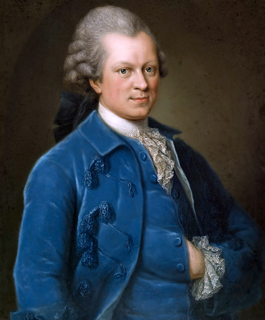A Quote by Douglas Adams
He inched his way up the corridor as if he would rather be yarding his way down it, which was true.
Related Quotes
Tessa was only half way down the corridor when they caught up to her -Will and Jem, walking on either side of her. "you didn't really think we weren't going to come along, did you?" Will asked, raising his hand and letting his witchlight fare up between his fingers, lighting the corridor to daylight brightness. Charlotte, hurrying along ahead of them, turned and frowned, but said nothing. "I know you can't leave anything well alone," Tessa replied, looking straight ahead. "But I though better of Jem." "Where Will goes, I go," Jem said good-naturedly. "And besides, I'm as curious as he is.
If there were only some way of contriving that a state or an army should be made up of lovers and their beloved, they would be the very best governors of their own city, abstaining from all dishonour, and emulating one another in honour; and when fighting at each other's side, although a mere handful, they would overcome the world. For what lover would not choose rather to be seen by all mankind than by his beloved, either when abandoning his post or throwing away his arms? He would be ready to die a thousand deaths rather than endure this.
Anglers have a way of romanticizing their battles with fish and of forgetting that the fish has a hook in his mouth, his gullet, or his belly and that his gameness is really an extreme of panic in which he runs, leaps, and pulls to get away until he dies. It would seem to be enough advantage to the angler that the fish has the hook in his mouth rather than the angler.
The way in which a man accepts his fate and all the suffering it entails, the way in which he takes up his cross, gives him ample opportunity — even under the most difficult circumstances — to add a deeper meaning to his life. It may remain brave, dignified and unselfish. Or in the bitter fight for self preservation he may forget his human dignity and become no more than an animal
I discovered several never-failing signs by which one might know when a man wished to take another wife. He would suddenly 'awaken to a sense of his duties'; he would have serious misgiving as to whether the Lord would pardon his neglect in not living up to his privileges; he would become very religious, and would attend to his meetings ... which seemed just then to be very numerous, and in various other ways he would show his anxiety to live up to his religion.
When a lion stalks a herd, he sneaks in close, lies down, and surveys them to choose his victim. He takes his time. The deer or buffalo have no idea he’s near. He finds his prey and then he explodes from his hiding place and grabs it. Even if another, perfectly serviceable animal ends up within his reach, he isn’t going to alter his course. He has chosen, and he would rather go hungry than change his mind.
The true value of man is not determined by his possession, supposed or real, of Truth, but rather by his sincere exertion to get to the Truth. It is not possession of Truth by which he extends his powers and in which his ever-growing perfectability is to be found. Possession makes one passive, indolent and proud. If God were to hold all Truth concealed in his right hand, and in his left only the steady and diligent drive for Truth, albeit with the proviso that I would always and forever err in the process, and to offer me the choice, I would with all humility take the left hand.
Did you dream of me?" he asked. "Yes," she admitted grudgingly. She had. She'd dreamed of his hands caressing her, of his mouth devouring her. His lush lips inched into a surprised but pleased smile. "You were naked," she told him. His grin spread; his eyes gleamed with satisfaction. "And tied up..." He arched his eye brows in smug expectation. "I did not know the idea of bondage would please you." "Oh, I love the idea of typing you up." She paused dramatically. "Just like in my dream, you'll be secured to an ant-hill and the little things will eat you alive.
A man writes to throw off the poison which he has accumulated because of his false way of life. He is trying to recapture his innocence, yet all he succeeds in doing (by writing) is to inoculate the world with a virus of his disillusionment. No man would set a word down on paper if he had the courage to live out what he believed in.
Your false self is always that which is passing away. Your true self doesn't go up or down, it's constant - it's a rock. Once you learn how to live there, what others say about you, your failures or successes - these don't send you on a roller coaster ride down or up. It's really the only way to peace. There's no other way to be peaceful except in the true self.
The true Indian sets no price upon either his property or his labor. His generosity is limited only by his strength and ability. He regards it as an honor to be selected for difficult or dangerous service and would think it shameful to ask for any reward, saying rather: "Let the person I serve express his thanks according to his own bringing up and his sense of honor. Each soul must meet the morning sun, the new sweet earth, and the Great Silence alone!. What is Silence? It is the Great Mystery! The Holy Silence is His voice!
Without the changed conditions, the product of a lost war, a revolution and a pervasive sense of national humiliation, Hitler would have remained a nobody. His main ability by far, as he came to realise during the course of 1919, was that in the prevailing circumstances he could inspire an audience which shared his basic political feelings, by the way he spoke, by the force of his rhetoric, by the very power of his prejudice, by the conviction he conveyed that there was a way out of Germany's plight.






































